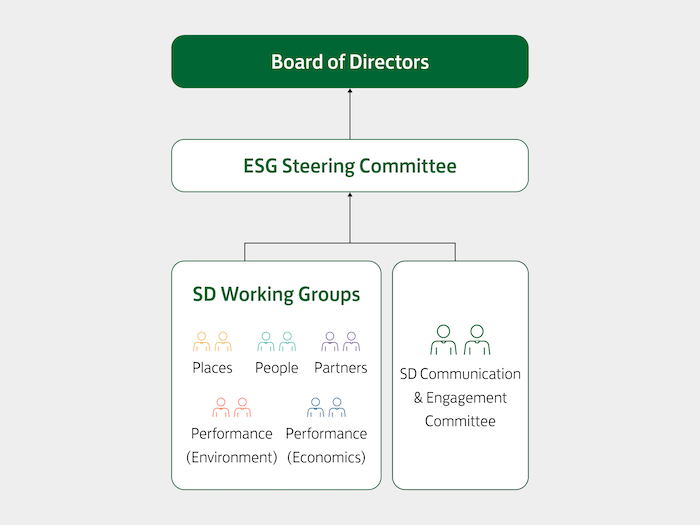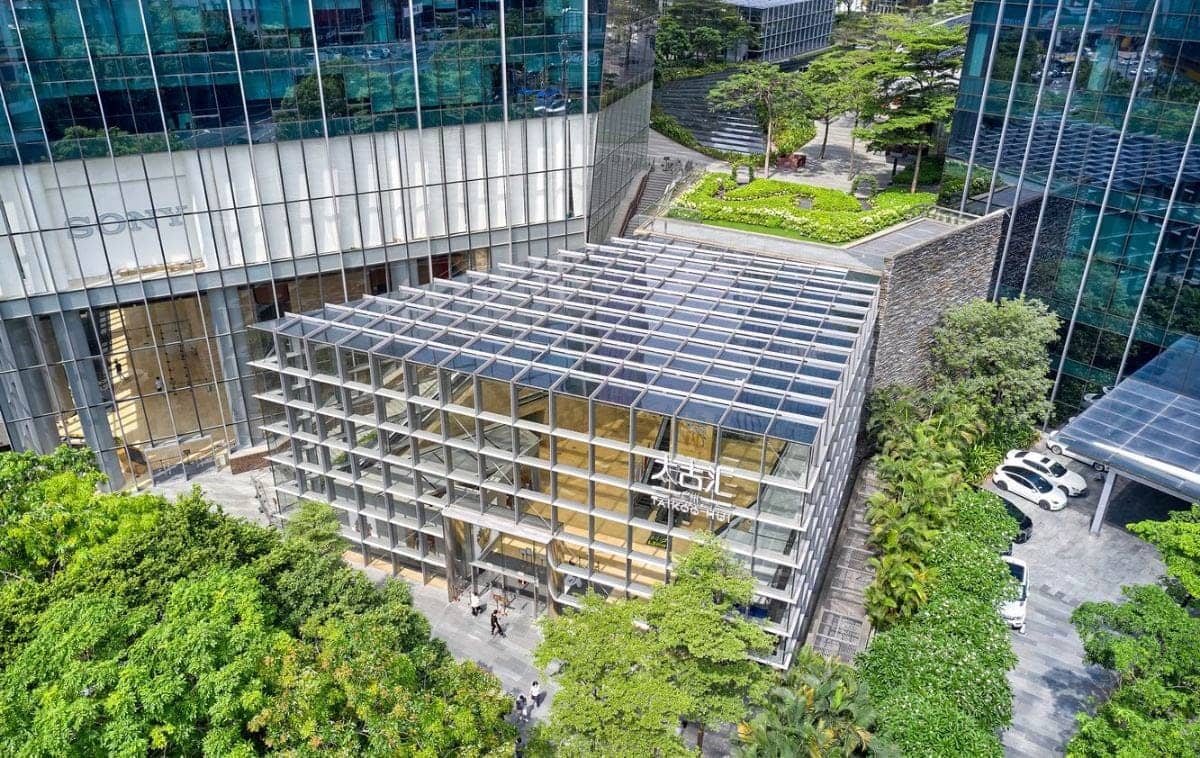Environmental Policy
In 2023, we updated our Environmental Policy with objectives that reflect the latest ISO 14001 management system requirements and the latest environmental management focus areas. The updated policy continues to set out our principles and underpins our approach to managing and reducing the environmental impacts of our operations. The revised policy includes adopting a whole building lifecycle approach to identifying the environmental risks and impacts of our activities. We also strengthened the language of the “minimising potential environmental impacts” section of our management approach to specifically mention pollution prevention.
The policy continues to encourage environmentally responsible action among our stakeholders, but it also states that we will indicate our preferences by considering the environmental performance of our suppliers and contractors during the procurement process.
Our Performance (Environment) Working Group is responsible for implementing the Environmental Policy.
Climate Change Policy
Climate change poses significant risks to our business. This policy outlines our commitment to managing climate change risks across our operations and developing mitigation, adaptation and resilience strategies to address these risks.
Energy Policy
In 2023 we updated our Energy Policy with objectives that reflect the latest ISO 50001 management system requirements and the latest energy management focus areas. The updated policy sets out a new part of our energy management approach – the adoption of an energy management hierarchy in our operations to prioritise demand reduction. In terms of residual energy demand, we will increase the use of renewable energy, where applicable, through on-site renewable energy generation, purchasing off-site renewable energy that is supplied externally and other methods.
We also strengthened our commitment to influencing the behaviour of our tenants, employees and others with whom we work.
Resource and Circularity Policy
This policy guides our approaches to reducing waste, from the design and construction phases of our projects to the daily operation and management of our buildings.
Water Policy
Last year, we conducted a review of our Water Policy to ensure alignment with regulations and to better reflect water-related issues that are material to Swire Properties.
The policy was updated to strengthen our commitments around the responsible use of water. These include understanding the water risks where our developments are located, reducing water-consumption intensity through improved design, implementing efficient water management measures during operation; ensuring that water is discharged into the environment safely; and engaging our stakeholders to encourage the responsible consumption of water.
Biodiversity Policy
We conducted a review of our Biodiversity Policy last year to ensure that it reflects biodiversity-related issues that are material to Swire Properties. During the review, no new material biodiversity issues were identified and as such, no amendments were made to the policy.
This policy sets out how we incorporate biodiversity considerations into our operations by minimising the adverse impacts of our developments on biodiversity and ecosystems, supporting appropriate biodiversity and conservation initiatives, promoting awareness of biodiversity and conservation issues, and other measures.
Environmental and Energy Management Systems
Environmental considerations are integrated into different areas of our business through environmental and energy management systems that conform to international standards such as the ISO 14001 Environmental Management System and the ISO 50001 Energy Management System. In 2023, approximately 99%10 of our assets in Hong Kong and the Chinese Mainland conformed to the ISO 14001 and ISO 50001 systems. All our portfolios regularly conduct internal environmental and energy audits performed by the Company’s technical professionals.
The ISO system adopts a Plan-Do-Check-Act cycle, steering companies to drive continuous improvements in their operations. Carbon, energy, waste and water targets are in place to drive continuous improvements and we conduct energy and waste audits, as well as water use assessments to understand our consumption and impact, identifying opportunities to further enhance efficiency. The targets are supported by robust management systems which involves integration of technology and innovations to drive efficiency over the lifecycle of our developments, engaging our stakeholders to encourage responsible consumption, and adoption of sustainable sourcing practices.
10By gross floor area (GFA). |
See More In
NaN / 3



